Sermon: When God’s Good Road Winds its Way…
Published by Ronald Steed,
GOD BREAKING IN | DAY LABOR | VINEYARDS
Sermon: When God’s Good Road Winds its Way…
St. Andrews Episcopal Church, Madison, CT ¹. Taken from Matthew 20:1–16 ²
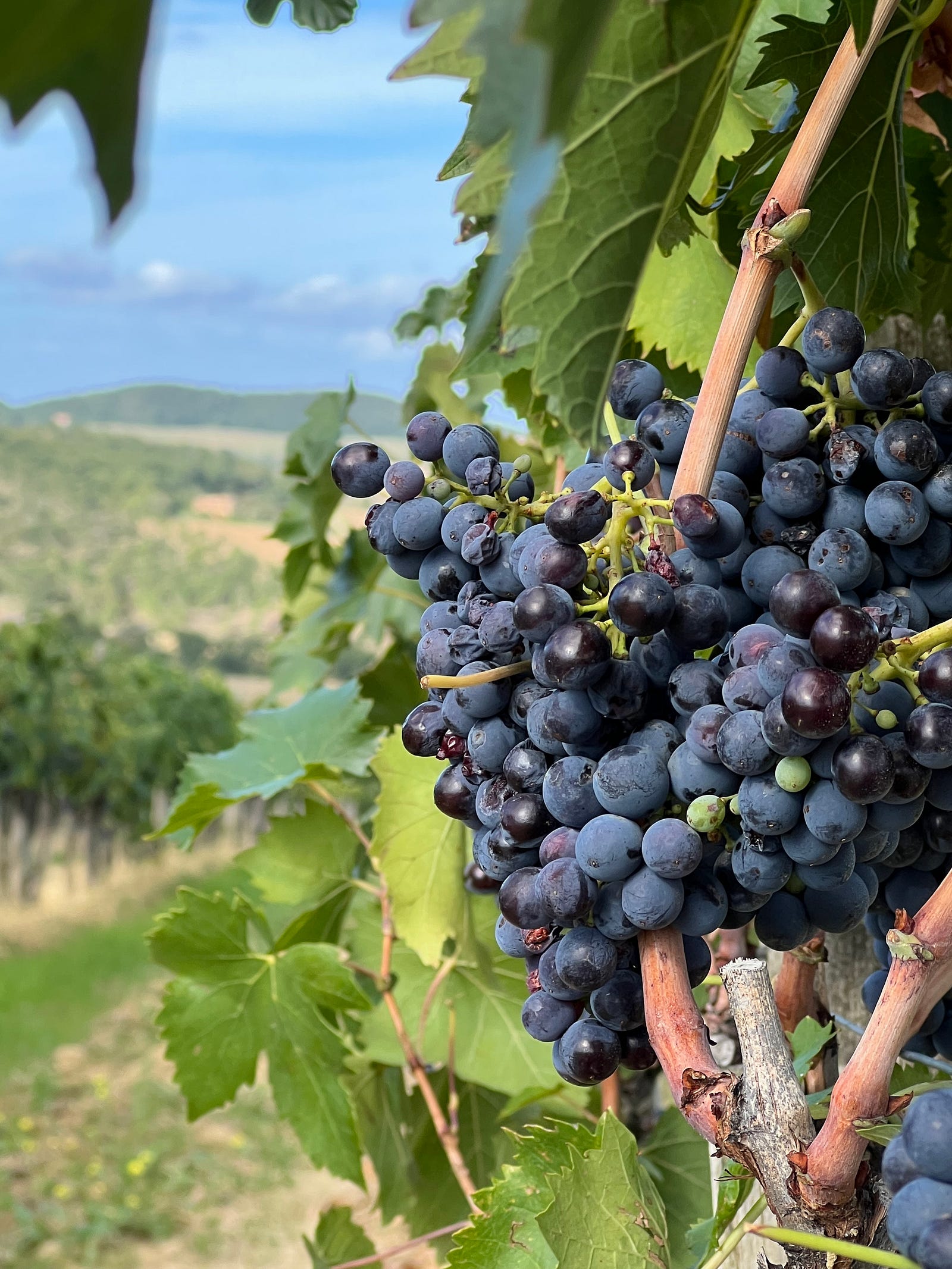
What happens when God breaks out in a vineyard? | Photo by Ronald Steed in Montepulciano , Tuscany
Come Holy Spirit, and halo-our-heads with the FIRE of your love!
What Happens?
I wonder what it is like when the Kingdom of God (or as Native American’s put it, "God’s Good Road") breaks into the world? What changes? What doesn’t? Does everything change all at once, or are there small, but important incremental changes that happen? Does it land beautifully and perfectly, or does it land messily?
I think today’s gospel story about the Landowner and the vineyard workers has something to say about this. But before we dive into this story, there are a few things we might try to sit with.
Things to Sit With…
First, there is a temptation to think that the Landowner is a character who stands-in for God. Let’s try to resist that temptation, because mostly, the story works better if the Landowner is not God. Let’s just suppose that he is what Jesus says he is; a male landowner. He’s probably pretty wealthy, and judging by all the workers he hires, he probably owns most of the land in the region surrounding his village marketplace. We can bet that if he’s rich, he’s also powerful, at least around this region. He has enough of both wealth and power to hire a manger to keep things running, and to set the terms of employment without question. And he clearly knows things, like what the usual daily wage is all about. I’m guessing that he is wealthy enough that he is not having to depend of getting a day’s wages just to eat; he probably eats pretty well. I think you get the picture; the Landowner is powerful, but he’s not God.
Second, think about the incandescent complaint that the first hired workers are making; "These last worked only one hour, and you have made them EQUAL to us who have borne the burden of the day and the scorching heat." I’m pretty sympathetic to that reasoning, and I bet a lot of you are too. Haven’t all of us heard the phrase "equal pay for equal work"? That seems fair. Let’s think about it.
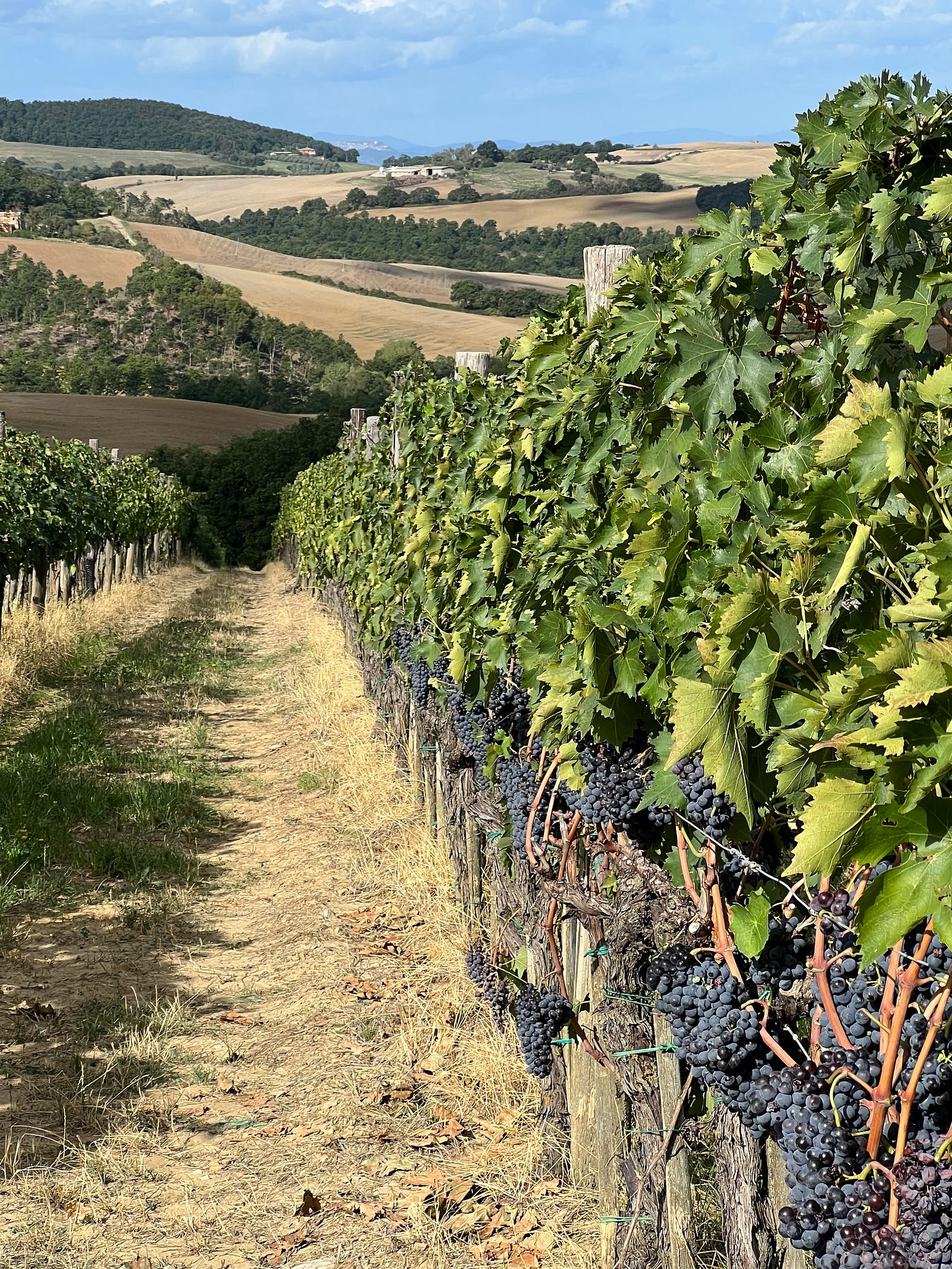
"Us who have born the burden of the day"… | Photo by Ron Steed in Montepulciano, Tuscany
Suppose all the first hired people were women, and that they are the ones who worked all day in the hot sun bringing in the landowner’s harvest. And suppose the last hired people were all men, who worked for maybe an hour. If both groups get paid equally, wouldn’t you as a woman say "Typical… the good ole boy’s club gets paid the same as the women who did all the work… what happened to equal pay for equal work? There’s no justice in what you are doing Mr. Landowner!"
Or, suppose all the first hired workers are Black and Brown people, and THEY are the one’s working all day to bring in the harvest, and the last hired workers are all white people. It would be the same thing; "Nothing new to see here", the first workers would say, "just the same kind of Jim Crow white supremacy that we experience every single day of our lives."
Feeing the Tension
So, it’s ok to feel some deep empathy with these first hired workers; they have something to say about equality and inequality; "equal pay for equal work". And… what does it feel like when we receive something unmerited? How about when others receive it? FEEL the tension as you try to hold these opposites together; earnings and gifts. Sometimes, when God’s Good Road breaks in, you might feel this same tension, as though something has happened that transcends and envelops opposites like these. BOTH feel right, and yet you KNOW they aren’t… or a least, it once SEEMED like you knew they weren’t, but now you’re not sure. Mmmmm…. Kingdom of God….
There’s a third thing going on here, and that’s about the KIND of people who got hired throughout the day. The first hires are all the ones who showed up bright and early in the morning. They are young, strong and vigorous. They are ABLE to work a full day. And they get chosen for work BECAUSE of these reasons. In fact, if there WERE some weak, or old, or sick ones there at the marketplace that early, they would get PASSED OVER and NOT HIRED. The ones that were idle at nine, noon, and 3 o’clock, are the ones who got up late, possibly because they drank the previous day’s wages… some of them are likely hung over. Or they are old, or sick, or lame, or not the right color if this story were in the U.S., or have some other problem that caused them NOT to be hired earlier. And by the time we get to the ones idle at 5pm, these had to be the absolute dregs of the workforce as far as the hiring managers were concerned. That’s the reality of day labor, and it is no different today than it was in Jesus’ time.
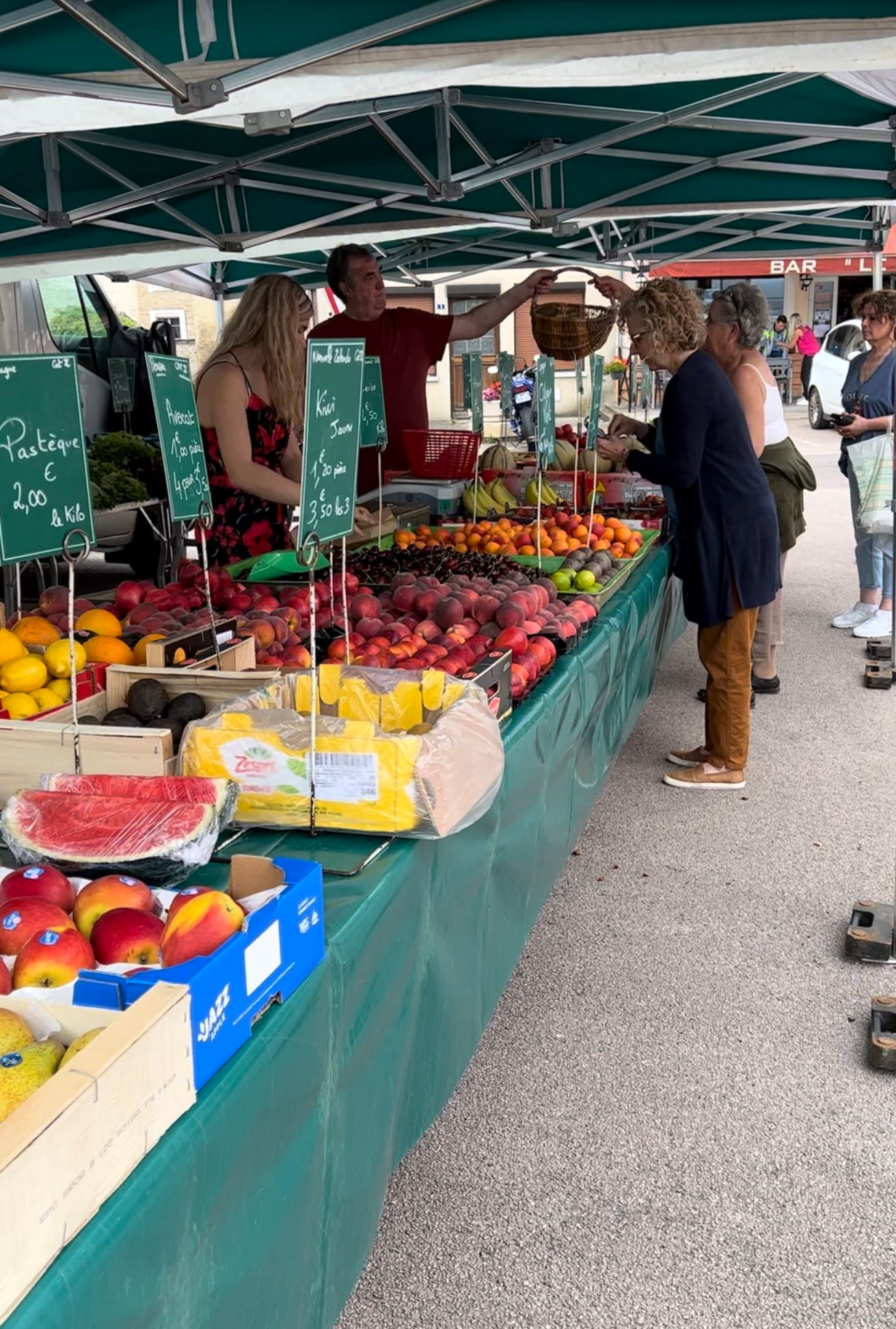
Who Gets Picked to Work in the Marketplace? | Photo by Ron Steed in Andelot, France
Finally, there’s a fourth thing going on. There’s a LOT of unemployment in this story… enough that there is real competition for a day’s wages. And those wages are needed to eat. If you don’t work a full day, you can’t afford a full day’s rations, or have a warm place to sleep that night. And that becomes a vicious cycle that makes it even less likely that you can work the NEXT day. And if there is some other expense, like you need medicines, or there’s a loan you have to pay back, you can get in trouble pretty quick. When these ones pray "give us this day our daily bread", that’s a pretty life-sustaining request!
A Surprise
Alright, so having figured out that the landowner really IS a landowner, that the first hired people really DO have a just complaint about the way they were treated, and having thought about the real dynamics of day labor, we might be ready to ask the question; "What does it look like when God’s Good Road, or the Kingdom of Heaven, breaks into this vineyard?"
One thing I think we can say, is that when God breaks into a place, it’s going to be a surprise… it’s not going to show up where we might expect. In this case, it looks like God’s Good Road has broken into the Landowner’s heart, and that’s the LAST place I would reckon God to be. I mean, I would expect, maybe it would land on one of the workers… maybe a pregnant woman hired in the third group. But surely NOT the rich landowner. But that’s what happened… I think that is what Jesus is pointing to… the Kingdom of Heaven is not predictable like we think… it goes where it will… it goes toward the soil that is prepared to receive it perhaps. And maybe that landowner’s soil was tilled by the Spirit and ready to receive what God seems eager to show him.
One Who Sees Things Differently Now…
Three things seem to have happened to the way the Landowner is suddenly seeing the world.
First, he no longer sends his MANAGER into the marketplace to make the hires, he goes there himself. The Landowner himself goes to meet the day workers. WHAT…. WHAT has touched him so that he thinks he needs to go there himself? The story does not say, but that’s the whole idea about parables, they invite us to ask questions like this. I wonder if the Landowner had a transformative experience before this story… sometime in the recent past where he met people, day workers, who were suffering from unemployment and let their stories touch his heart. And maybe more importantly, he discovered these were people just like him, with gifts, and desires, and dreams that they were eager to share. They were no longer statistics on a payroll sheet, but neighbors whom he could get to know and to love. I wonder if that was the thing that tilled his soil?
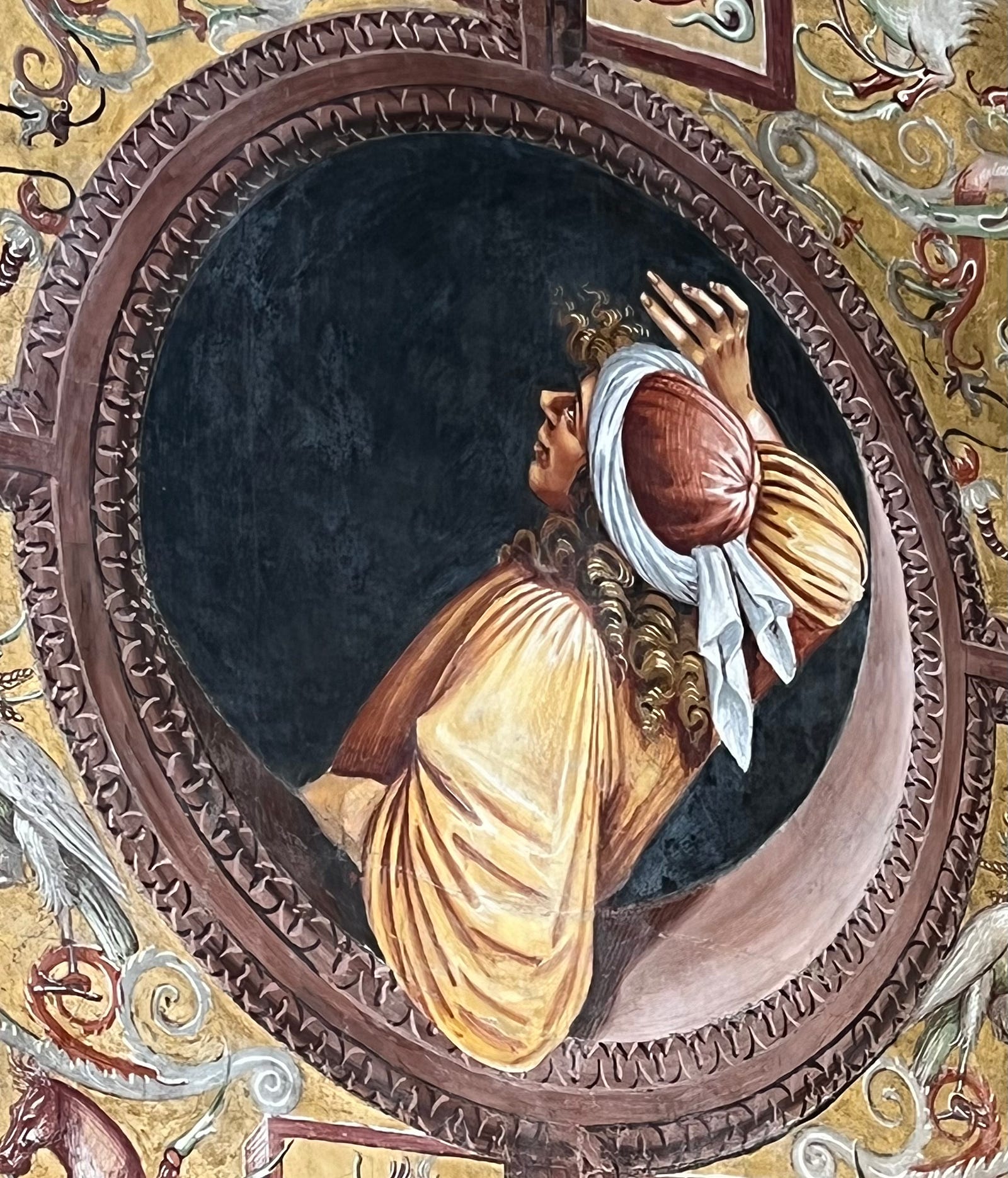
The Landowner sees things from a different perspective now | Photo by Ron Steed in the Duomo di Orvieto
Second, the landowner seems to be seeing "the Problem", the Capital "P" Problem, completely differently.
It no longer matters to him that his vast vineyards needing labor to get the harvest in, he’s noticing something else that seems MORE important; unemployed people standing idly around his community marketplace. "I’m going to hire everyone I find who’s just standing around, no matter how many there are. I’m going to provide daily food for as many as I can, because my community is really suffering unemployment, and I have the means to help." He feels this so strongly, that he goes not just once, but five times to the marketplace… personally. Maybe he doesn’t send his manager because his manager is working on a completely different problem.
And third, he’s going to be over-the-top generous with his money. He’s going to pay these workers as a GIFT, not because of the hours they have worked, but because he CAN. The manager has to be beside himself about this! "Sir? … pay them all the same? Are you sure? Can you afford to do this? Is it sustainable? God help us…" The Landowner doesn’t seem to care. That’s what he is going to do.
The Last Shall be First…
So maybe, just maybe, THIS is what it looks like when the Kingdom of Heaven breaks into the world. Maybe, the very LAST person you would expect to be touched by the Spirit… this wealthy Landowner, is exactly the FIRST one in this community to have his heart broken.
Does it go well? Yes, for some, but not for everyone. Does it cut across community norms and boundaries? Oh yes… some folks are made very angry by this, and others might eat a full meal for the first time in weeks. Is it perfect? It doesn’t seem like it, and yet, it’s hard to argue with the Landowner’s reasoning… "Am I not allowed to do what I choose with what belongs to me? Or are you envious because I am generous?"
I think, when we are looking for God’s Good Road to break out among us, we might think about the lessons of this parable:
- It might break into the places and people where we least expect it.
- It might break onto some in ways that seem like a blessing and to others like a curse. It might seem to be both ways to us, both at the same time! It might break into some who never have any idea that it did, but it is very apparent to others who witness it.
- It might be messy; might not break in as perfectly as we think it should, though on reflection, it just might be EXACTLY what is needed.
- Maybe we should do less looking for it than just being open to when it happens.
The Middle Man
There’s an Episcopal Priest and poet I follow, Rosalind C. Hughes, who wrote the BEST poem about this story. It’s focused on the manger, who really IS the LAST person we might expect to receive the Kingdom of Heaven:
The Middle Man³
The manager suspected
that his boss might be a good man,
God help us, he muttered,
manipulating money into
open palms and curling fingers alike.
Sunset played the devil with his eyes,
garbling the complaints of weary
and incandescent workers,
while those who left first,
looking back, saw him haloed
as though with living fire.
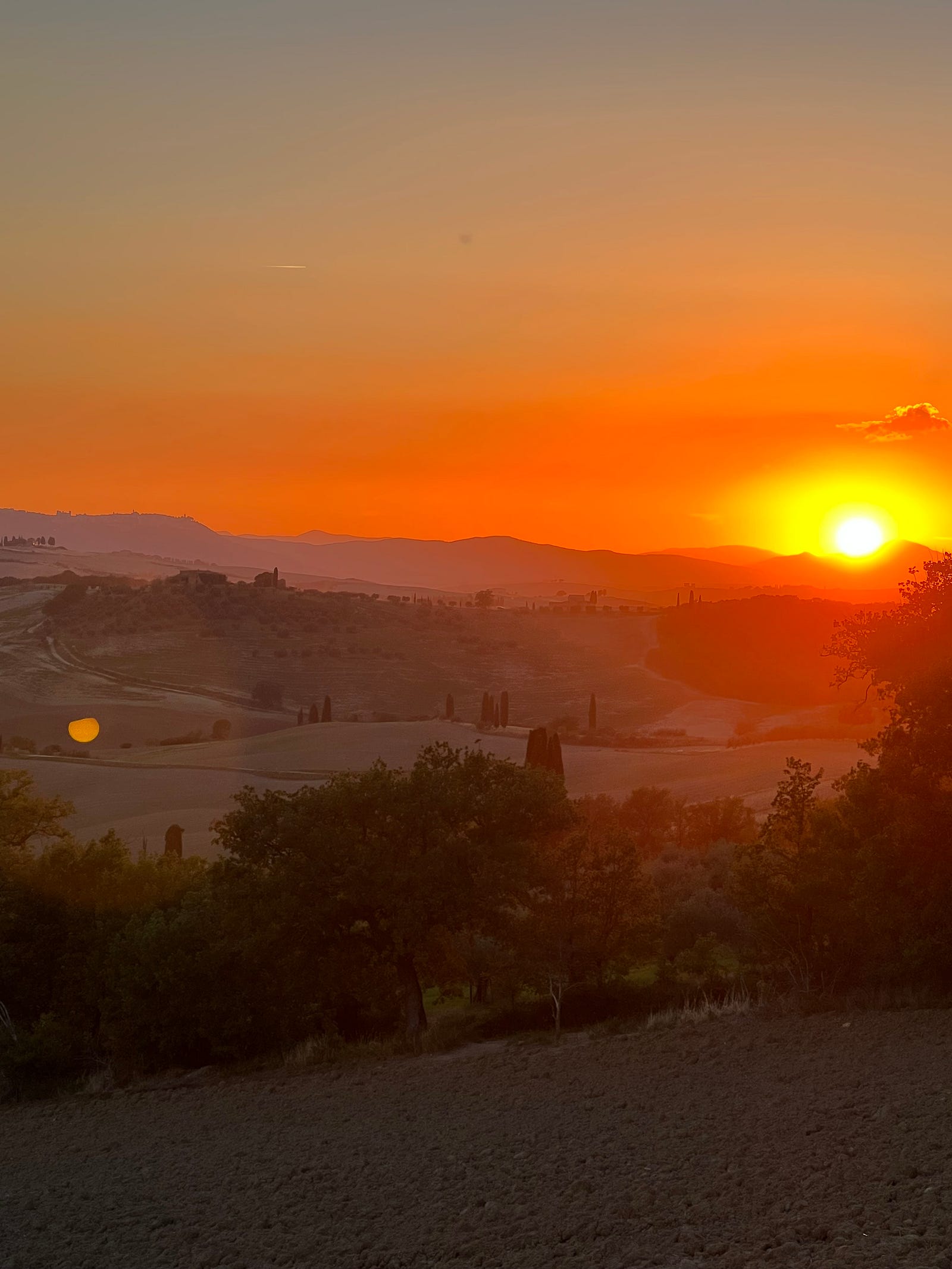
"The sub played the devil with his eyes…" | Photo by Ron Steed in Pienza, Tuscany
- This sermon was delivered at St. Andrews Episcopal Church, Madison, CT, on The Seventh Sunday of Easter: The Sunday after the Ascension, September 24, 2023
- Matthew 20:1–16 (NRSV)
Jesus said, "The kingdom of heaven is like a landowner who went out early in the morning to hire laborers for his vineyard. After agreeing with the laborers for the usual daily wage, he sent them into his vineyard.
When he went out about nine o’clock, he saw others standing idle in the marketplace; and he said to them, ‘You also go into the vineyard, and I will pay you whatever is right.’ So they went. When he went out again about noon and about three o’clock, he did the same.
And about five o’clock he went out and found others standing around; and he said to them, ‘Why are you standing here idle all day?’ They said to him, ‘Because no one has hired us.’ He said to them, ‘You also go into the vineyard.’
When evening came, the owner of the vineyard said to his manager, ‘Call the laborers and give them their pay, beginning with the last and then going to the first.’ When those hired about five o’clock came, each of them received the usual daily wage.
Now when the first came, they thought they would receive more; but each of them also received the usual daily wage. And when they received it, they grumbled against the landowner, saying, ‘These last worked only one hour, and you have made them equal to us who have borne the burden of the day and the scorching heat.’
But he replied to one of them, ‘Friend, I am doing you no wrong; did you not agree with me for the usual daily wage? Take what belongs to you and go; I choose to give to this last the same as I give to you. Am I not allowed to do what I choose with what belongs to me? Or are you envious because I am generous?’ So the last will be first, and the first will be last."
3. Hughes, R. C. (2023, September 21). The Middle Man. Over the Water. https://rosalindhughes.com/2023/09/21/the-middle-man/
The Rev. Ron Steed is an Episcopal Deacon in Southeast Connecticut, has served the New London Homeless Hospitality Center in a variety of ways, and now works as a Chaplain at Lawerence & Memorial Hospital in New London, CT. He writes haiku and lyrical prose that he hopes will help others put the head and heart in right-relation.
Top writer in: Art, Watercolor, Haiku, Sermons, Refresh the Soul Weekly, and Episcopal Church.

Ron Steed